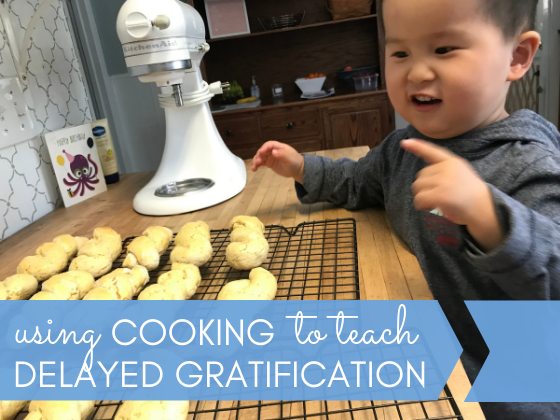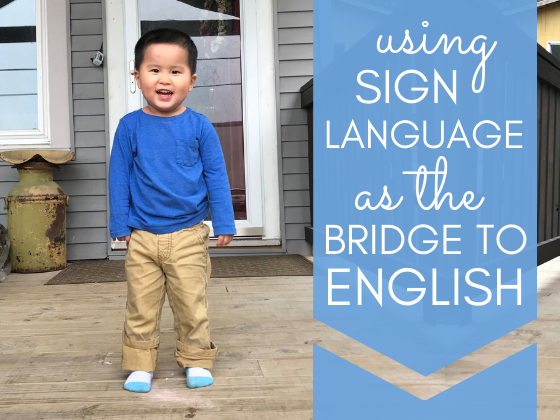USING COOKING TO TEACH DELAYED GRATIFICATION
_________________________________________________________
_________________________________________________________
One thing we quickly took note of was that, compared to many of the other children, Benjamin was simply capable. I use the word "capable" meaning he could walk, talk, pick things up, and even communicate much better than many of the other children in his room (36 children to be exact).
That being said, we ended up nicknaming him the "sheriff" of his room. If he wanted something, he could either go get it off the shelf for himself or he could potentially take it from a less capable child without trouble. If the other child either didn't have the strength to keep the toy, words to communicate to the nannies that he/she was playing with the toy first, or the ability to follow Benjamin to get the toy back, Benjamin could be successful in getting what he wanted when he wanted it.
From a slightly different angle, every day at the orphanage was a series of predictable routines (naturally, considering the circumstances) so Benjamin always knew what was coming and when. Think of it more as being on autopilot rather than waiting for the next step in the routine.
Even food was "instant" to him. With so many children in the orphanage, food is prepared by cooks in a separate place where the children can't see the process of food being made. Benjamin had only known food to appear ready to be immediately eaten, he didn't really have any sort of understanding that food can sit in front of your eyes and not be edible yet... aka, it has to be cooked first.
When we brought Benjamin home, delayed gratification was something that Benjamin either didn't have a concept of or didn't want to submit to. And one of the best tools to teach delayed gratification for us so far has been cooking together.
Now, I'm not gonna lie... I hate cooking with kids. It takes way longer, can be dangerous depending on what you're making, and guarantees that not only will you have to clean up the dishes afterward but also the floor, the counter, the step stool, the kid, yourself, and quite possibly the dog 🙈.
 |
| Case in point. |
Nevertheless, I've been having him help in the kitchen making muffins, cookies, pancake batter, etc. It gives me the opportunity to talk about everything we're doing (more English), label different kinds of food (more and more English), and give him a chance to play with and feel things he may have never felt before (sensory play). While we're cooking together he's able to see each ingredient go into a bowl as one thing and come out of the oven as a completely different (now edible) thing.
I'll talk about sign language in another post but during this process, I've been saying the word "patient" and using the sign for "wait" to give him something visual to connect to the idea that something good is coming but not right now.
We're using the sign for "wait" because the sign for "patient" involves bringing your hand to your mouth and that's too similar to the sign for "eat" for Benjamin. However, instead of him hearing the word "wait", we want him to hear the word "patient" because we feel like it has a deeper connotation than "wait" that we want him to carry over into other areas of his life.
Once the batter is poured into the pan, I turn on the oven lights and Benjamin is able to watch the muffins (or whatever we're baking/cooking) grow in size as they cook. It's only about a 12-minute wait before he's able to see the end result.
Even after the muffins come out of the oven, I'm able to continue to use the word "patient" and sign for "wait" alongside the word and sign for "hot" to be able to tell him that the muffins are hot and we have to be patient just a little longer. It's only about 5 more minutes and then Benjamin gets to enjoy the fruits of both his labor and his patience.
Doing this with food has helped him understand the concept of being patient in SO MANY other areas and I believe has staved off more than one would-be tantrum.
When Abi and Andrew get on the bus in the morning, I wave goodbye and tell Benjamin that Abi and Andrew will come back but we have to be patient. Usually two or three times a day at random moments, Benjamin will look out the window, sign "wait" to me, and say "may-shint". Oh my glory, it is so cute.
If Benjamin wants a toy that Abi or Andrew is playing with, I can say "patient" and sign "wait" and he totally tracks with me. Even in the grocery store, where we're surrounded by food he can easily see and may want to eat for a good 30-45 minutes, I've been able to use the word "patient" and the sign for "wait" to get out to the car tantrum free.
This has helped build trust between us. Benjamin seems to understand that when I say "patient" I mean "not yet" and that eases any fear he might have of never having something or getting to something.
I may loathe the extra clean up in the kitchen but letting Benjamin cook with me has paid off 100 fold... and I don't mind rewarding myself with a muffin either 😉






Comments
Post a Comment